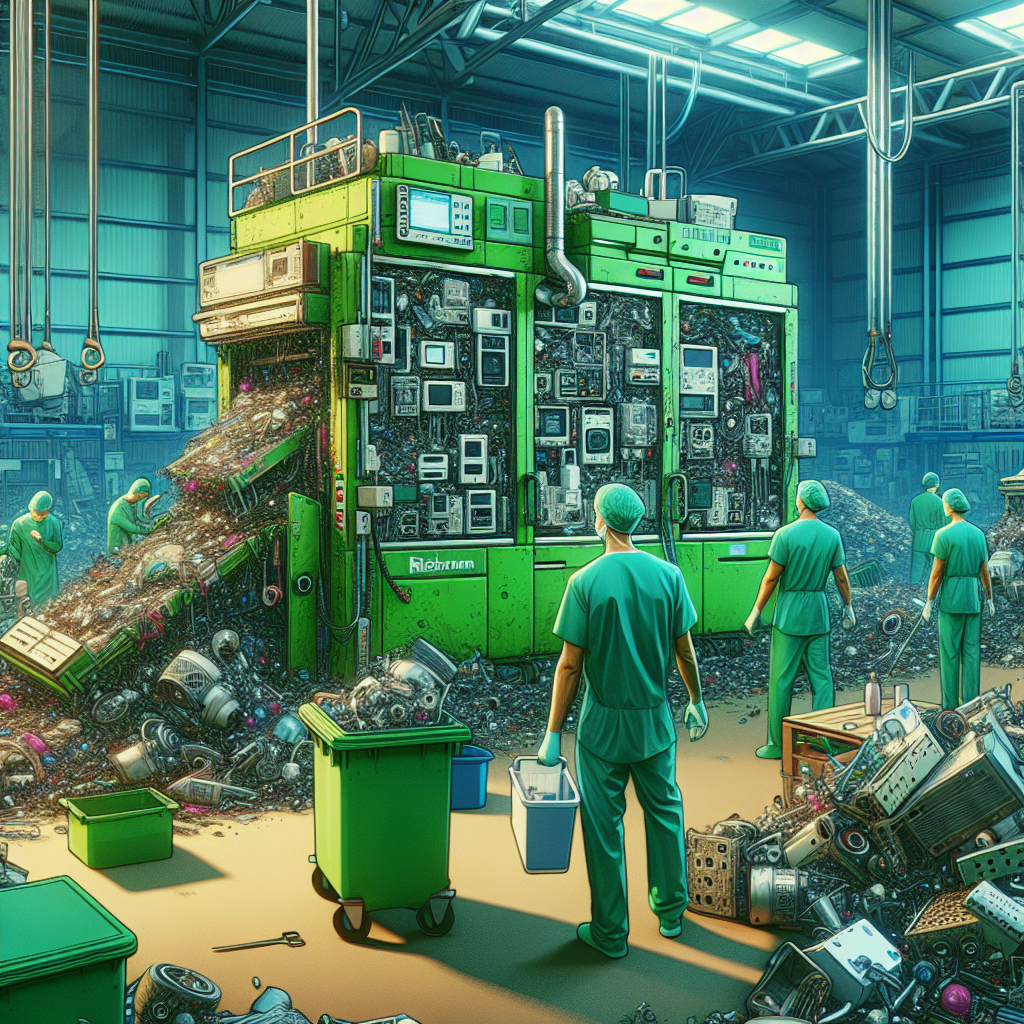Blog Ecobraz Eigre

Recycling Obsolete and Damaged Hospital Equipment
Obsolete and damaged hospital equipment poses environmental and legal risks when disposed of inappropriately. Proper recycling, based on current legislation, allows for the recovery of materials and the minimization of environmental impacts, ensuring compliance with the National Solid Waste Policy (Law No. 12,305/2010) and specific standards for healthcare waste. The article details the best practices for handling, transporting and recycling this equipment, including scheduling electronic waste collection and the safe sanitization of storage media, such as hard drives, available at safe disposal of hard drives.
Legislation Applicable to the Recycling of Hospital Equipment
The National Solid Waste Policy (PNRS), established by Law No. 12.305/2010, establishes guidelines for waste management, including that generated in health services, as provided for in Anvisa Resolution RDC No. 222/2018. This standard regulates the integrated management of waste in healthcare establishments, determining requirements for segregation, packaging, collection and environmentally appropriate final disposal.
Classification and Risks of Obsolete Hospital Equipment
Hospital equipment used in clinical procedures contains electronic components and materials that can present chemical and biological risks. Inadequate storage and incorrect disposal can lead to environmental contamination and exposure to pathogens or toxic substances, such as heavy metals contained in electronic boards. Correct management from decommissioning to recycling is therefore essential.
Reuse and Recycling Processes
Before recycling, equipment must undergo a technical assessment to identify whether it can be reused or repaired. Completely unrepairable equipment is then dismantled and the components separated and sent to certified recyclers, in line with the procedures established for electronic waste. For the safe removal of data stored on devices such as hard drives, the adoption of certified techniques is recommended, guaranteeing the destruction of sensitive information, as recommended by data protection legislation.
Logistics and Transportation
The transportation of obsolete hospital equipment must be carried out by means that ensure the integrity of the components and avoid the spillage of hazardous substances. Law No. 12.305/2010 articulates shared responsibilities between generators, transporters and recyclers, who must act in accordance with the National Solid Waste Management Information System (SINIR), as established by Decree No. 10.936/2022.
Importance of Scheduling and Specialized Services
Due to the complexity and risks involved, it is recommended that healthcare institutions make scheduling for e-waste collection, relying on service providers specialized in the safe handling of hospital e-waste. For the destruction of data on digital media, the safe disposal of hard drives is essential to guarantee the secrecy and privacy of the information.
Conclusion
The proper management of the recycling of obsolete and damaged hospital equipment is a legal requirement and an essential practice for the environmental sustainability of the health sector. Complying with current regulations, optimizing the disposal process by scheduling specialized services and guaranteeing data disposal security are in line with the best governance and socio-environmental responsibility practices.
The proper management of obsolete and damaged hospital equipment is a legal requirement and an essential practice for environmental sustainability in the healthcare sector.

Deixe um comentário
O seu endereço de e-mail não será publicado. Campos obrigatórios são marcados com *